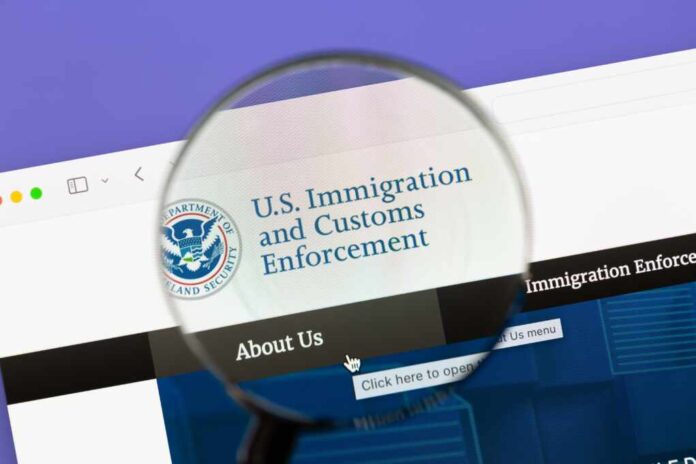
What happens when the very people sworn to uphold the law are targeted in their own homes?
At a Glance
- Anti-ICE violence escalates, putting officers and their families at risk.
- Doxing campaigns expose personal information of ICE officers online.
- Portland becomes a major hotspot for anti-ICE protests.
- Federal response includes legal action and increased security measures.
Escalating Threats Against ICE Officers
In a troubling turn of events, the violence against U.S. Immigration and Customs Enforcement (ICE) officers has reached unprecedented levels. Activist groups, under the guise of protest, have ramped up efforts to target these officers not just at work, but in their personal lives. Doxing—a tactic involving the online publication of private information—has become a preferred weapon, with sites like “Rose City Counter-Info” and “The Crustian Daily” leading the charge.
NEW REPORT from Homeland Security outlines ICE Agents and their families are being doxxed by ANTIFA, threatened in Portland by “WANTED” posters for targeted assassinations with their home addresses, assaults ⬆️700%.
[this is why Democrats want the masks off ICE] pic.twitter.com/mSdZrw0ijg
— Dapper Detective (@Dapper_Det) July 12, 2025
Portland, Oregon, emerges as a central hub for these activities, where protests outside the ICE facility have been ongoing since early June 2025. These demonstrations have often escalated from peaceful gatherings to violent clashes, resulting in property damage and assaults on federal officers. The situation has become so dire that the Department of Homeland Security (DHS) reports an 830% increase in assaults on ICE personnel over the first half of 2025 compared to the previous year.
Watch: ILLEGAL MIGRANT DOXXING ICE AGENTS
Federal Response and Legal Actions
The federal government, recognizing the gravity of the situation, has begun taking decisive action. DHS Secretary Kristi Noem has vowed to prosecute those responsible for doxing ICE agents to the fullest extent of the law. The department has also taken steps to protect its officers, including allowing them to wear masks to conceal their identities from potential attackers.
However, these protective measures have drawn criticism from civil rights groups and media outlets like NPR, who argue that the use of masks undermines public trust. Despite this, former ICE Director Tom Homan staunchly defends the practice, citing the sheer scale of the threats faced by officers as justification.
The Role of Activist Groups
Activist groups, including those affiliated with anarchist and Antifa movements, have intensified their campaigns against ICE, citing the agency’s role in deportations and family separations as justification for their actions. These groups operate largely anonymously, leveraging online platforms to organize and execute protests, many of which devolve into violent confrontations.
The tactics employed by these groups have not only endangered ICE officers but also disrupted local communities. Residents of areas like Portland find themselves caught in the crossfire, with their neighborhoods becoming battlegrounds between protestors and law enforcement. This has led to a mixed response from the community, with some residents supporting the protests and others decrying the resulting chaos.
Implications and Future Outlook
The implications of this escalating violence are profound. There is a very real risk that law enforcement agencies will struggle to recruit and retain officers, deterred by the heightened personal safety risks. This could lead to broader implications for public safety and immigration enforcement nationwide.
In the long term, there may be legislative responses aimed at addressing the issues of doxing and violence against federal officers. Such measures could include stricter penalties for those who engage in these tactics, as well as debates over civil liberties and protest rights. Ultimately, the situation underscores the deep divisions within American society and the challenges faced in balancing security with civil liberties.

























